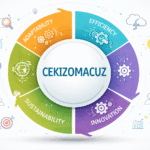In today’s competitive business environment, companies increasingly recognize that their greatest asset is their people. Organizations that can accurately identify talent, evaluate employee performance, and predict future success are better positioned for sustainable growth. Implementing reliable HR assessment solutions has become essential for companies striving to make data-driven decisions that enhance workforce productivity and engagement.
Understanding HR Assessment Solutions
HR assessment solutions encompass a range of tools and processes designed to evaluate an individual’s skills, competencies, personality traits, and overall suitability for specific roles. These assessments go beyond traditional resumes and interviews, providing objective insights into an employee’s capabilities and potential. By leveraging these tools, organizations can make informed hiring, promotion, and training decisions that align with both immediate and long-term business goals.
These solutions often include cognitive ability tests, personality assessments, skills evaluations, and situational judgment exercises. Together, these elements create a comprehensive picture of a candidate or employee, allowing HR teams to better match talent to organizational needs.
Benefits of Using HR Assessment Solutions
1. Improved Hiring Accuracy
Recruitment is a significant investment for any company. By incorporating HR assessment solutions into the hiring process, organizations can minimize hiring errors, reduce turnover, and ensure that new hires are the right fit both culturally and professionally. Objective data from assessments provides a clearer understanding of a candidate’s strengths and areas for development, resulting in more informed selection decisions.
2. Enhanced Employee Development
HR assessments are not limited to recruitment; they are equally valuable for existing employees. By identifying skills gaps and potential growth areas, organizations can tailor training programs to individual needs. This targeted approach improves performance, boosts employee satisfaction, and fosters long-term career development. Employees who feel supported in their professional growth are more likely to remain engaged and committed to the company.
3. Succession Planning and Leadership Development
Identifying future leaders is critical for organizational continuity. HR assessment solutions help companies pinpoint high-potential employees and assess their readiness for leadership roles. These insights enable succession planning that is strategic rather than reactive, ensuring a pipeline of capable leaders ready to take on key responsibilities when the need arises.
4. Objective Decision-Making
Human resource decisions can sometimes be influenced by unconscious biases or subjective opinions. By relying on structured assessment tools, organizations can make more objective decisions based on measurable data. This reduces bias in hiring, promotions, and performance evaluations, contributing to a fairer, more transparent workplace.
5. Boosting Employee Engagement
When employees are matched to roles that suit their strengths and provided with opportunities for growth, engagement naturally increases. HR assessment solutions help managers understand their team members better, enabling more meaningful feedback, improved communication, and a stronger alignment between individual and organizational goals. Higher engagement translates into increased productivity, lower absenteeism, and reduced turnover.
Implementing HR Assessment Solutions Effectively
To maximize the benefits of HR assessment solutions, organizations must implement them strategically. Start by clearly defining the objectives of the assessment—whether it’s recruitment, development, succession planning, or performance evaluation. Next, choose assessment tools that are validated, reliable, and relevant to your industry and organizational context.
Training HR professionals and managers on interpreting assessment results is also critical. Insights are only valuable when they are properly understood and applied. Organizations should integrate these assessments into broader HR practices and use them as one component of a holistic talent management strategy.
Finally, regularly review and update the assessment process to ensure it remains aligned with evolving business needs and workforce trends. A flexible and dynamic approach ensures that HR assessments continue to provide actionable insights that drive organizational success.
Conclusion
Incorporating HR assessment solutions into human resource practices is no longer optional; it is a strategic necessity. These tools enable organizations to make informed decisions, improve employee performance, support career growth, and plan for future leadership needs. By adopting data-driven assessment methods, companies can unlock the full potential of their workforce and gain a competitive advantage in today’s ever-changing business landscape.
For organizations looking to enhance their talent management strategies, HR assessment solutions offer a proven way to align employee capabilities with business objectives, ensuring both individual and organizational success.








